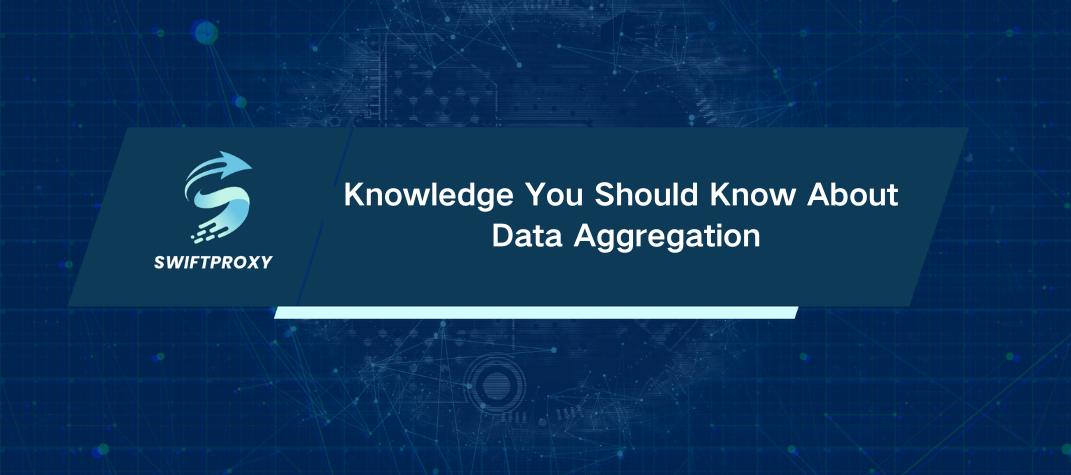Knowledge You Should Know About Data Aggregation

Gathering data and compiling summaries for analysis can be challenging and time-consuming when done manually. Therefore, an effective solution is needed to streamline the process and ensure that data is collected accurately and efficiently.
Given this context, data aggregation proves to be an ideal solution, effectively addressing the needs of various industries. Furthermore, a recent study by Springer underscores that data aggregation is now a crucial element of Internet of Things (IoT) devices, highlighting its significance in today’s tech-driven world. So, why is aggregated data so valuable for businesses striving to maintain a competitive edge?
What Is Meant by Data Aggregation?
When collecting data from multiple sources, managing and making sense of information can become quite complex, especially with large volumes of information. Data aggregation helps by organizing this data, making it manageable and easier to understand compared to its raw form.
A clear example of this is how search engines deliver targeted ads based on the data stored in users' web browsers. Companies seeking to collect extensive data on their website visitors and online customers employ a similar approach, enabling them to analyze various statistics, including customer demographics and behavior.
So, what is aggregate data? In essence, it is customer information that enables businesses to target users with personalized messages and offers. Additionally, it helps companies refine their marketing strategies by promoting successful products or services and possibly discontinuing those that are not performing well.
Financial and Investment Data Aggregation
A prime example of data aggregation is in the financial industry. Here, companies need to stay current with the latest news and trends to make informed decisions. Data aggregation facilitates this by allowing investment and finance firms to adjust their strategies based on the performance of the companies or products they are invested in.
Certainly, you can obtain financial and investment data by visiting various news websites that cover these topics. However, with the vast number of sites available, manually collecting all the relevant information can be challenging. Additionally, ensuring the reliability of the data can be problematic if not enough information is gathered.
Fortunately, data aggregation addresses this issue by enabling the efficient and accurate collection of extensive data from numerous websites. Automated data aggregation tools facilitate this process, making it significantly easier to gather precise and relevant information.
Data Aggregation within the Travel Sector
Whether it's for acquiring market intelligence, conducting competitor research, or tracking rival price levels, it's clear that businesses in the travel sector can greatly benefit from leveraging data aggregation processes.
In today's competitive market, it is necessary to consider each of these aspects, as neglecting them could result in significant setbacks for travel companies, causing them to lag behind their rivals.
Without aggregated data, obtaining the relevant insights for these purposes would be quite challenging. Manually collecting and analyzing data from multiple sources would require a significant amount of time and resources.
Data aggregation tools are valuable for travel companies today, as they help monitor competitors' offers and trends. These tools also enable businesses to deliver targeted promotions for popular destinations, attracting customers and reducing the likelihood of them booking with other providers.
Aggregating Data in the Retail Industry
Like the travel industry, the retail sector is highly competitive today. Businesses must strive to be as appealing as possible, as customers may easily choose other options if their needs are not met. Thus, data aggregation is crucial in the retail industry, playing a significant role in various aspects of maintaining competitiveness.
One of the key applications of data aggregation in the retail industry is competitive price monitoring. In today's market, this is vital for business success. Therefore, e-commerce and retail businesses must closely monitor competitors' promotions and pricing through diligent competitive research.
Moreover, during the data aggregation process, retail and e-commerce businesses should focus on collecting extensive and relevant data from competitors' websites. This approach will provide accurate information essential for adjusting pricing and refining marketing strategies.
Final Summary
By now, it's clear that data aggregation offers substantial benefits for businesses in multiple ways. This article has explained what data aggregation is and illustrated how key industries today can greatly benefit from its use through relevant examples.
If you own a business in one of the industries discussed, considering the advantages of data aggregation is highly beneficial. By implementing these strategies, your travel, retail, or e-commerce business will be better positioned to attract and retain customers. Similarly, for financial and investment firms, data aggregation will simplify and accelerate the creation of accurate and reliable data sets.
To learn how to use data aggregation more effectively or apply it to your industry, stay tuned with us at Swiftproxy. Additionally, you can choose to access our API links to enhance the efficiency of your web scraping processes.

















































